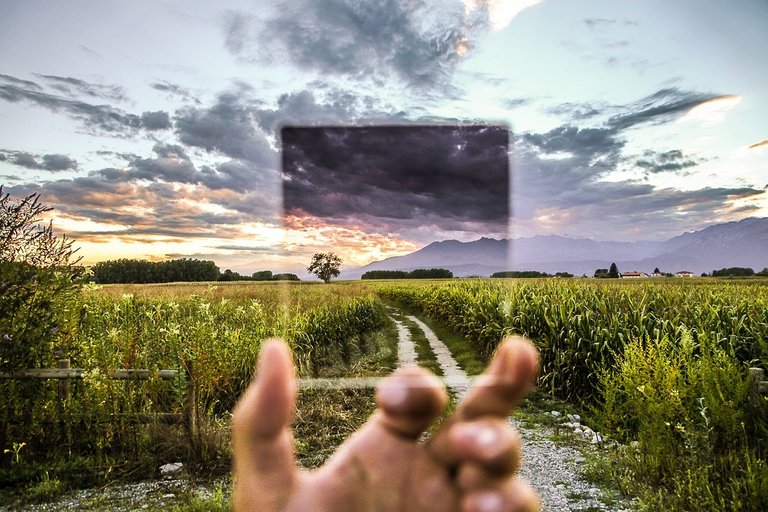
Image by SplitShire from Pixabay
It's no secret that society has a tendency to dictate what is 'normal' or 'acceptable.' We're regularly bombarded with images and messages telling us how we should look, behave, or feel. And while there's nothing wrong with wanting to improve ourselves, the pressure to conform to these unrealistic standards can take a toll on our mental and emotional health. That's why I believe in embracing the real you. It's about accepting and loving yourself for who you are, not who you think you should be. It's about being honest with yourself and others, and living your life with authenticity. I remember the first time I used a filter on a picture of myself. I was amazed at how different I looked. My skin looked perfect, my features were softened, and I appeared slimmer. It was like looking at a different person altogether.
Since then, I became addicted to using filters. Every time I post a picture of myself, I make sure to use one so that I look my best. But the more I rely on them, the more distorted my view of myself becomes. I no longer see the flaws that make me unique; all I see is an artificial version of myself that doesn't exist in real life. And it's not just pictures - seeing other people's filtered photos makes me feel bad about myself too. Why can't my skin look like that? Why aren't my features as perfect as theirs?
It's easy to get caught up in this cycle of comparison and self-doubt, but it's important to remember that everyone's beauty is unique - even if it doesn't meet society's standards. Filters are fun and can be helpful in boosting our confidence, but we need to learn to love ourselves for who we really are - imperfections and all. As I've grown older, I've come to realize that unleashing my natural beauty is far more powerful than relying on filters. It's taken a lot of work, but I'm getting better at embracing my flaws and accepting myself for who I am.
This journey has been liberating in so many ways. I no longer worry about what people think, instead, I focus on being healthy and happy with the way I look. By practicing positive self-talk and embracing my natural beauty, I'm slowly building up my confidence and learning to accept the real me - filter-free! But filters have become a go-to tool for many people when it comes to sharing photos or videos of themselves online. But why? What is the purpose of filters? And more importantly, what impact do they have on our self-confidence?
I believe that filters are primarily used as a way to cover up our insecurities or imperfections. We use them to make ourselves look thinner, taller, prettier, etc. But in doing so, we're only perpetuating the cycle of low self-esteem and lack of confidence. Filters send the message that we're not good enough the way we are. They tell us that we need to change or improve our appearance in order to be accepted. This can lead to feelings of inadequacy and insecurity. And it can also prevent us from truly connecting with others, because we're hiding behind a fake version of ourselves.
There are plenty of examples of people in the media who have embraced their natural beauty. One prime example is actor, director, and producer James Franco. In an interview with The Hollywood Reporter, Franco spoke about his decision to stop using Instagram filters after he realized that they were negatively impacting his mental health: 'I was looking at myself in the mirror and thinking, 'Why does this look different than when I look at myself on Instagram?'' Franco isn't the only one who has spoken out against filters. Model and cosmetic entrepreneur Lili Reinhart also recently made headlines when she expressed her frustration with how perfect retouched images make people feel. 'It's not real,' Reinhart said in an interview with Harper's Bazaar. 'And it makes people question what's real and what's not.'
These celebrities aren't the only ones who have chosen to embrace their natural beauty. There is a growing movement of people who are refusing to edit their photos before posting them online, using the hashtag # filtersarefake or # nofilter. This trend is especially popular among young people, who are increasingly rejecting unrealistic standards of beauty in favor of celebrating individual uniqueness. So why is this important? Because filters present a distorted view of reality that can contribute to feelings of insecurity and low self-esteem. Seeing filtered images of other people can make us compare ourselves unfavorably to those around us, leading to unrealistic expectations and disappointment.
Let our children not grow up in a terrible world. Together we can make it better. It is our destiny to
suffer from the past, to long for the future, but to forget the present.
Any unsourced images and writing are my own. Life is worth it!
Thank you for support and follow me @darthsauron


Hello @darthsauron
Thank you for sharing this beautiful piece with us.
However, we've noticed that your engagement with other members has not really been encouraging. So, we'll advice that you improve in your engagement. All this is in view of boosting growth for all of us.
Congratulations @darthsauron! You have completed the following achievement on the Hive blockchain And have been rewarded with New badge(s)
Your next target is to reach 25000 upvotes.
You can view your badges on your board and compare yourself to others in the Ranking
If you no longer want to receive notifications, reply to this comment with the word
STOPCheck out our last posts: